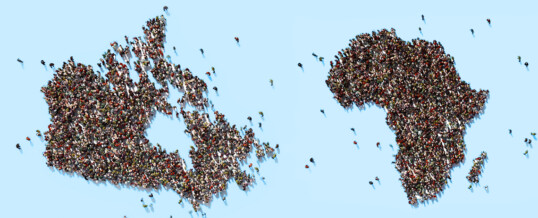
McLeod Group guest blog by Belinda Dodson, Aug. 26, 2024
After years of hinting at an imminent Africa strategy, Global Affairs Canada (GAC) has launched “final consultations” on a “proposed approach to partnerships in Africa”. There are rumours that a draft framework has been in internal circulation for several months. So why hold these consultations? Is it genuine solicitation of stakeholder input or window dressing to add credibility to a predetermined outcome?
Such concerns aside, the consultations present an opportunity for Canadians with an interest in Africa to inform Canada’s engagement with the continent. After years of Canada neglecting Africa in favour of other world regions, such as the Indo-Pacific, even belated interest is welcome. Indeed there has been little evidence of high-level attention since Prime Minister Trudeau’s visit to Ethiopia and Senegal in early 2020.
In the call for public input, “partnership” is expressed in broad terms of “engaging with African institutions and countries to work towards building a stronger, expanded, and more visible partnership” and “placing an emphasis on mutually beneficial partnerships where Canada can support African-led solutions”. It refers to Canada’s “feminist foreign policy” and “reconciliation with Indigenous peoples” and identifies five priority themes, expressed in general, broad-brush terms.
Based on my personal, academic and professional experience, I offer the following observations and recommendations.
First, the “feminist foreign policy” framing rings hollow. There is little to show for it after years of Liberal government, and it is likely to undermine effectiveness if left ill-defined or reduced to “women and girls”. Instead, the framework for partnerships should adopt a principled approach, based on commitment to democracy and human rights, and treating African governments and people as equal partners with Canada and Canadians.
Second, the absence of climate change and energy justice from the proposed priority themes is inexplicable, if perhaps implicit in “global priorities”. African mineral resources are a crucial part of the global energy transition. Africa is already suffering disproportionately from the effects of climate change, while Africans continue to experience inequity in access to clean, reliable energy sources for their own needs.
Third, whatever priority themes eventually emerge, youth and gender considerations must be crosscutting, from planning and programming to evaluating outcomes and impact. There should also be linkage across themes and priorities. For instance, connecting humanitarian assistance to peace and security; global priorities to poverty reduction; youth opportunities to shared prosperity.
Fourth, Canada can do more to leverage its position in relation to multilateral bodies and international organizations, including pushing for reform and strengthening of such institutions. Canada should support the establishment of permanent seats for Africa on the UN Security Council. Within the Commonwealth, Canada could do more to support democracy and advance human rights. Canada could further develop its partnership with the African Union, with which it shares a number of interests and priorities. More could be done within the G7 and G20 to build Canada-Africa partnerships. In terms of government-to-government relations, Canada should focus on democratic country partners and scale back engagement with authoritarian regimes.
Fifth, Canada’s population includes a growing number of African immigrants, who maintain social, economic, cultural and political ties with their home countries. GAC could engage this “new” diaspora more systematically, not only in occasional ad hoc consultations but as agents and facilitators of various forms of partnership. GAC could also interact more consistently with members of the African Studies academic community in Canada, many of whom are immigrants from Africa.
Sixth, there is a disconnect between Canada’s foreign policy and immigration policy. In addition to challenges in accessing economic and humanitarian channels for permanent immigration, African nationals encounter a visa barrier when seeking to visit Canada temporarily for personal or professional purposes. Any plan to build Canada-Africa partnerships should start there, because there cannot be meaningful interaction or exchange if Africans find it difficult or impossible to visit Canada.
Finally, if partnerships are to be of mutual benefit, then GAC should be asking why African governments, companies, CSOs and universities should want to partner with Canada, when they have so many other choices of international partners. Why Canada rather than China, Turkey, India, UK or US? GAC should ask Africans for input, including members of Generation Z ‒ like the young people in Kenya who recently protested against their government. Without starting from Africans’ needs and priorities, there is a risk that Canada will continue to view Africa as either a giant development project or a breeding ground for terrorism, perpetuating stereotypes rather than rebalancing geopolitical and generational power.
Belinda Dodson is an academic researcher with adjunct professor positions at Carleton University and the University of Western Ontario. She is also the Coordinating Editor of the Canadian Journal of African Studies. Image: Senate of Canada.
